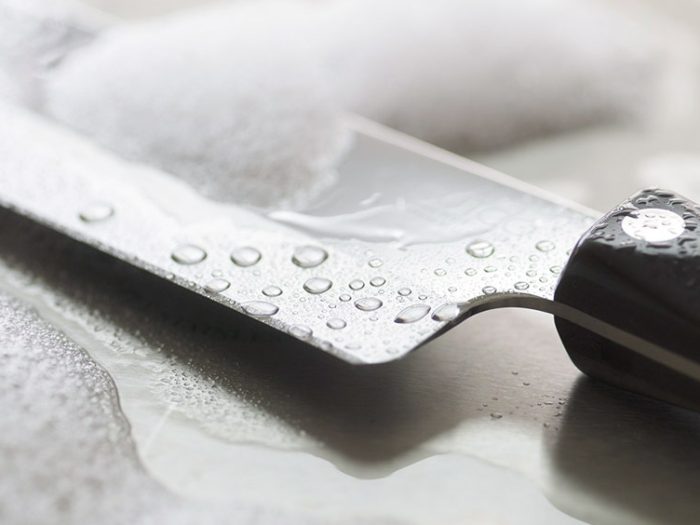
In the world of culinary arts, a well-maintained knife is a cook’s most valuable tool. Whether you’re a seasoned chef or a beginner in the kitchen, having sharp and properly cared-for knives can elevate your cooking experience and make meal preparation a breeze. However, many home cooks overlook the importance of knife care and maintenance, leading to dull, damaged blades and frustrating kitchen sessions. In this beginner’s guide, we’ll explore simple yet effective tips to help you keep your knives in top condition, ensuring they stay sharp and ready to tackle any culinary challenge.
The Importance of Knife Sharpening
A sharp knife is not only more efficient but also safer than a dull blade. Dull knives require more force to cut, increasing the risk of slippage and potential injury. Regular knife sharpening is essential to maintain the razor-sharp edge that makes slicing, dicing, and chopping a breeze.
Proper Sharpening Techniques: While professional knife sharpening services are an option, learning basic sharpening techniques can empower you to keep your knives in top condition at home. Invest in a quality whetstone or sharpening rod, and follow the manufacturer’s instructions for the recommended sharpening angle and technique.
Honing and Maintaining the Edge: In between full sharpenings, honing your knives with a sharpening steel or rod can help realign the edge and prolong the sharpness. Incorporate honing into your routine before each use for optimal cutting performance.
Cleaning and Drying Knives
Improper cleaning and drying can lead to rust, discoloration, and premature wear on your knives. Follow these simple guidelines to ensure your blades stay pristine and protected.
Handwashing is Best: Avoid putting your knives in the dishwasher, as the harsh detergents and high temperatures can damage the blades and handles. Instead, opt for handwashing with mild soap and warm water, taking care to rinse away any soap residue.
Dry Thoroughly: After washing, thoroughly dry your knives with a clean, soft cloth or paper towel. Moisture left on the blades can lead to rust and corrosion, compromising the integrity of your knives.
Proper Storage and Handling
How you store and handle your knives can significantly impact their longevity and performance. Implement these practices to ensure your knives remain in top condition.
Invest in a Knife Block or Magnetic Strip: Proper storage not only keeps your knives organized but also protects the blades from damage. A knife block or magnetic strip is an excellent investment for safely storing your knives when not in use.
Avoid Cutting on Hard Surfaces: Cutting directly on hard surfaces like stone, glass, or ceramic can quickly dull and damage your knife blades. Always use a quality cutting board made of wood or plastic to protect your knives and ensure smooth, efficient cutting.
Handle with Care: Treat your knives with respect and care during use. Avoid twisting or prying motions that can bend or damage the blade, and never use your knives for tasks they were not designed for, such as opening cans or prying lids.
Proper knife care and maintenance are essential for every cook, regardless of skill level. By implementing these simple tips, you can ensure your knives remain sharp, safe, and ready to tackle any culinary challenge that comes your way. Remember, a well-maintained knife is not only a pleasure to use but also a testament to your dedication to the culinary arts.
If you’re unsure about your knife sharpening skills or prefer the expertise of professionals, consider scheduling a consultation with our team of experts. We’ll ensure your knives receive the care and attention they deserve, restoring their razor-sharp edges and extending their lifespan.
Stay sharp and subscribe to our newsletter for more valuable insights, tips, and tricks on knife care and culinary excellence. With the right knowledge and care, your knives will become trusted companions in your kitchen adventures.

